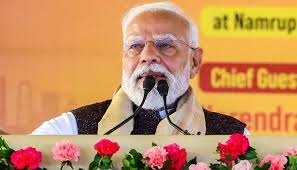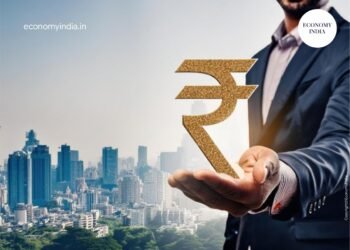According to reports, In a step toward data-based decision making, NITI Aayog vice-chairman Suman Bery launched the National Data Analytics Platform (NDAP) for public use on Friday.
Speaking at the launch event, Bery said, “The main value that NDAP adds is making key foundational datasets interoperable with each other. This will enable easy cross-sectoral analysis and democratise the use of Indian government data.”
NITI Aayog’s chief executive officer Amitabh Kant, chief economic adviser V Anantha Nageswaran and other senior officials from NITI Aayog, various ministries and state governments, academics and researchers were present at the event, the report said.
Conceived in 2020, the platform aims to standardise data across government sources and provide flexible analytics, making it easy for users to analyse information using multiple datasets.
Currently, government data available in the public domain is not standardised. This makes it difficult for policymakers, academics, and researchers to analyse it. NITI officials said that while many government departments have public dashboards with options to download, some datasets are available in a format such as an image or PDF, making it difficult to use the data for further analysis by comparing it to another dataset, the report said.
In NDAP, all datasets are standardised to a common schema, which makes it easy to merge datasets and do cross-sectoral analysis. The platform currently has 203 datasets from 47 central government ministries and agencies and 14 sectors. HT reported about the platform in April this year.
Stressing the need for data-driven decision making, Amitabh Kant, NITI Aayog’s chief executive officer, said, “The rise of data and digital technologies is rapidly transforming economies and societies, with enormous implications for governments’ daily operations. NDAP is a critical milestone – which aims to aid India’s progress by promoting data-driven disclosure, decision making and ensuring availability of data connecting till the last mile, is an example to how the power of data can be leveraged.”
The datasets available on the portal have been selected based on use cases and after discussion with experts on the most commonly used data required for various analyses. For instance, Census, National Family Health Survey, Unified District Information System for Education data etc, are available on the portal, the report said.
Senior Adviser at NITI Aayog Anna Roy, who led this initiative, said, “India has a rich data ecosystem which generates data that is invaluable for decision making and research. NDAP is adding to these efforts to further strengthen the data ecosystem. We will continue to add and update the data on the platform to ensure that it remains useful.”
NDAP follows a use-case-based approach to ensure that the datasets hosted on the platform are tailored to the needs of data users from government, academia, journalism, civil society, and the private sector.
The platform, NITI officials said, is aimed at democratising access to government data, which is in the public domain by making it accessible, interoperable, interactive, and available in a user-friendly manner, the report said.
Data collected by various government departments is incoherent due to different standards for common indicators. NITI officials said that NDAP uses specially designed algorithms that process data fetched from various government portals ensuring uniformity in semantics so that two different datasets can be compared. (Source: Hindustan Times)













